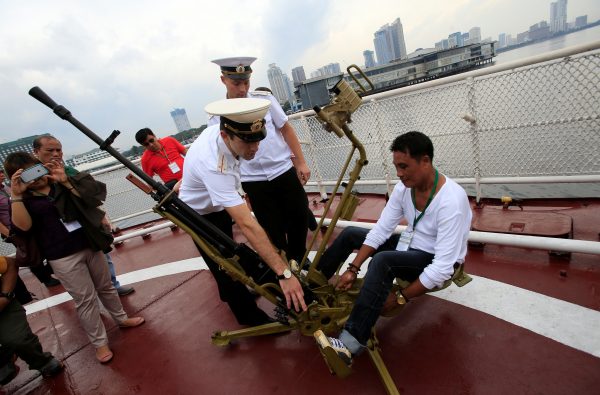But can Russia make use of this positive image in its pursuit of soft power and influence?
My study of perceptions of Russia among young educated elites in Southeast Asia indicates that this positive view is fairly widespread.
Although these countries probably have a rather limited knowledge of Russia, its overall image with respect to its government, economy and culture is quite positive. Association with and memory of the Soviet Union remain quite strong, although Russia’s positive image is based mostly on non-political links.
There is also a certain degree of correspondence between the self-image held by the Russian elite — that of Russia as a Eurasian great power — and the image of Russia held by elites in Southeast Asia. Despite the rather limited nature of Russia’s current relations with the region, it is seen by many as a great power that belongs to both Europe and Asia, and one that plays an important and positive role in the world and in the Asia-Pacific region. Russia is still perceived to hold significant and positive influence in Vietnam and Laos despite the drastic decline in bilateral relations since the Cold War years.
This generally positive image of Russia may seem like welcome news to Russian policymakers. Today, Southeast Asia plays a secondary role in Russia’s foreign policy. But certain recent developments in Russia’s policy towards the region, such as the establishment of a branch of the government funded Russkiy Mir Foundation in Bangkok in 2012, the re-opening of the Russian Cultural Center in Vientiane in 2013 and the ASEAN–Russia Summit in Sochi in May 2016, suggest Russian policymakers are paying increasing attention to Southeast Asia.
Southeast Asia’s importance in the global economy and regionalism in the Asia Pacific, coupled with its relative lack of political cohesion and a deepening internal rift over the South China Sea dispute, make it an attractive arena for Russia’s increasingly assertive foreign policy. As such, Russian foreign policymakers may want to utilise its positive public image to expand its influence in the region.
But the usefulness of these positive perceptions as soft power resources is quite limited. While the generally positive view of Russia as a Eurasian great power could be used by Russia as a source of legitimacy for greater involvement in the region, there are important dissonances between Russia’s idea of itself and the view that emerges from Southeast Asia.
For example, the perception of Russia as a great power relies heavily on its association with the Soviet Union. By contrast, in the Russian elite’s narrative, there is a limited sense of continuity between today’s Russia and its Soviet past.
Furthermore, while Southeast Asia may have a positive view of Russia’s government and economy, culture is seen as Russia’s main asset and economic cooperation is the most preferred area for collaboration. Russia’s attractiveness to Southeast Asia is mostly value-free and is not based on any particular ideology.
Russia’s deeper economic involvement in the region and further attempts to promote its culture would probably be welcomed by the next generation of elites in Southeast Asia. But further political involvement or a quest for political leadership by Russia in the region would have little resonance.
Alexander Bukh is Senior Lecturer in International Relations, Victoria University of Wellington. You can follow him on Twitter at @redbear70.

